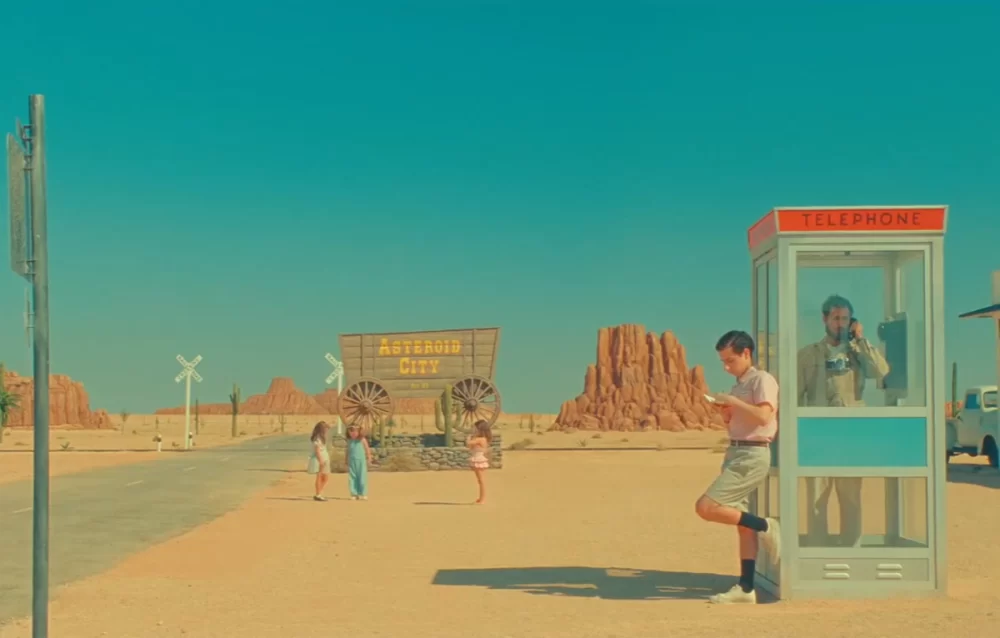What a year for feature films this has been, both rich and strange. Indeed, fantasy seemed to have taken the lead, as we emerge from the fever of the COVID epidemic and try to find the new normal. These were not the usual escapist fantasies, but fantasies that spoke to our current, more conscious and more precarious state of being. Below are my personal choices for the best, in alphabetic order—films that combined elevation and inspiring form and content. While I selected these without consideration of director, there are many veteran auteurs among them—from long established ones such as Hayao Miyazaki and Martin Scorsese to relative newbie Greta Gerwig. Only one film, Past Lives, is made by a first-time director, Celine Song, and a most promising one.
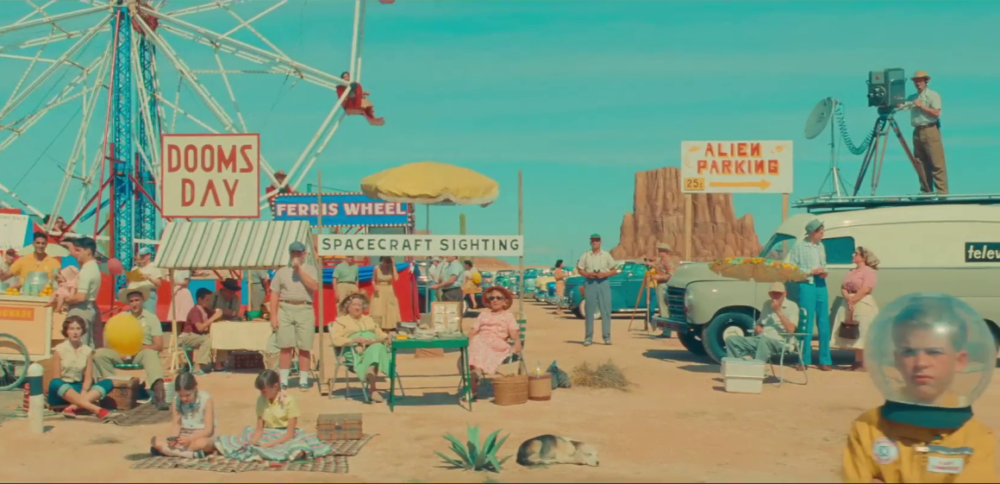
Asteroid City, Directed by Wes Anderson
In the mid-1950s, photojournalist Augie Steenbeck (Jason Schwartzman) brings his precocious son Woodrow and three younger daughters to the Junior Stargazer’s convention taking place in the southwest desert. They stay in a motel soon to be populated by other parents and children, including a potential love interest in the form of glamorous Midge (Scarlett Johansson), set against the backdrop of extraterrestrial and UFO sightings and atomic testing in that era. Typical of an Anderson film (he also co-wrote the script), the set and the mise en scène are as absorbing as the plot, and the pastel color scenes are hypnotic.
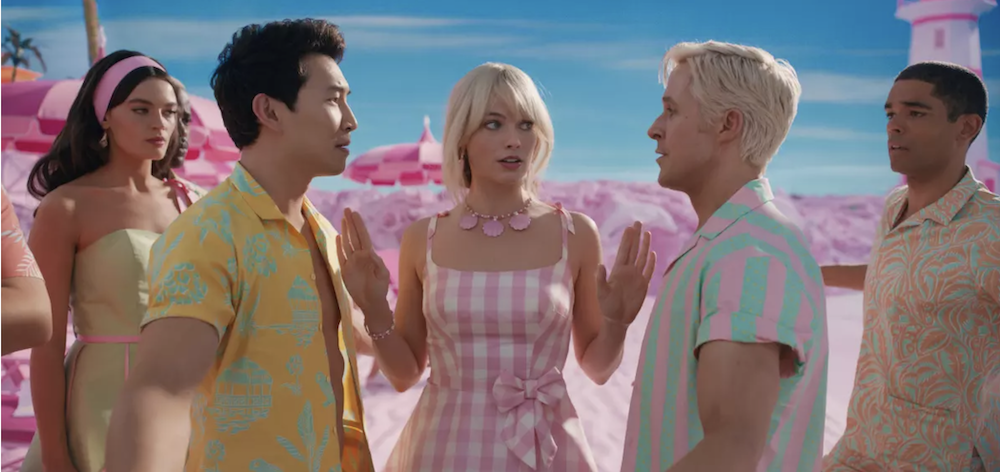
Barbie, Directed by Greta Gerwig
Barbie manages to deftly straddle satire and salute to the “It” doll of the late 1950s. Margot Robbie plays the sweet airhead, living in her own pink bubble-licious Barbie Land, until some existential questions pop into her pretty head. She journeys to the Real World to get answers with Ken (Ryan Gosling), a stowaway in her pink convertible. The sexism and patriarchy she encounters is a shock to her system, and she is transformed. This is one of the most delightful and clever films of the year, weaving a hilarious feminist counter-narrative to Barbie, the icon.
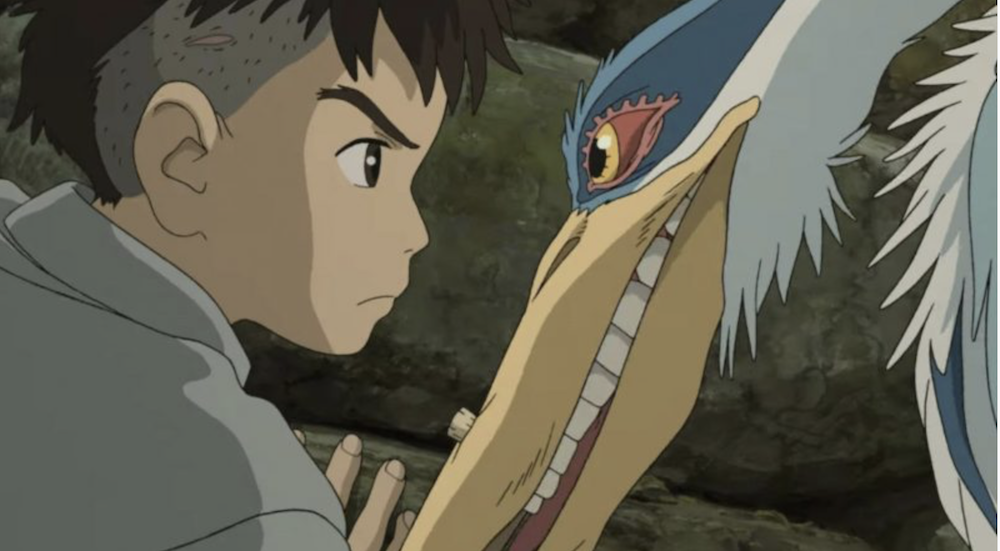
The Boy and the Heron, Directed by Hayao Miyazaki
The great Japanese animator Miyazaki returns, with a story about a boy, Mahito, who goes to live with his father and new wife (who also happens to be his aunt, his mother’s sister) in the countryside during World War II. Mahito is grieving the death of his mother, who perished in a ghastly hospital fire, and he’s led by a strange heron to a tower in the forest she might possibly be living in. As in his previous films (Princess Mononoke, Spirited Away), Miyazaki reveals to us how the world of the spirit is ever part of ours.
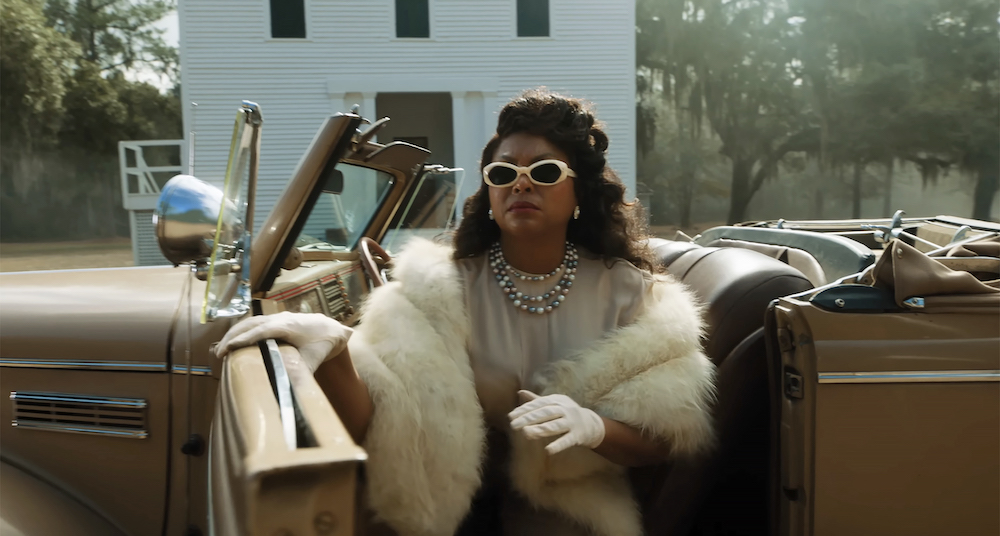
The Color Purple, Directed by Blitz Bazawule
What a knockout of a film—the singing, the dancing, the sorrow and the joy we are taken through. A musical about oppression and racism in the post-Civil War South? Somehow it works in this story of Celie (Fantasia Barrino), who is separated from her beloved sister Nellie (Halle Bailey), and gets married off to a man who treats her like a slave. There are many wonderful performances, with the standouts Bailey and Taraji P. Henson, who plays singer “Shug” Avery. Shug is an electrifying catalyst, bringing glamour to rural life and helping Celie get a sense of her own self-worth. Both actresses have charismatic presence and gorgeous voices, and the choreography by Fatima Robin is stellar.
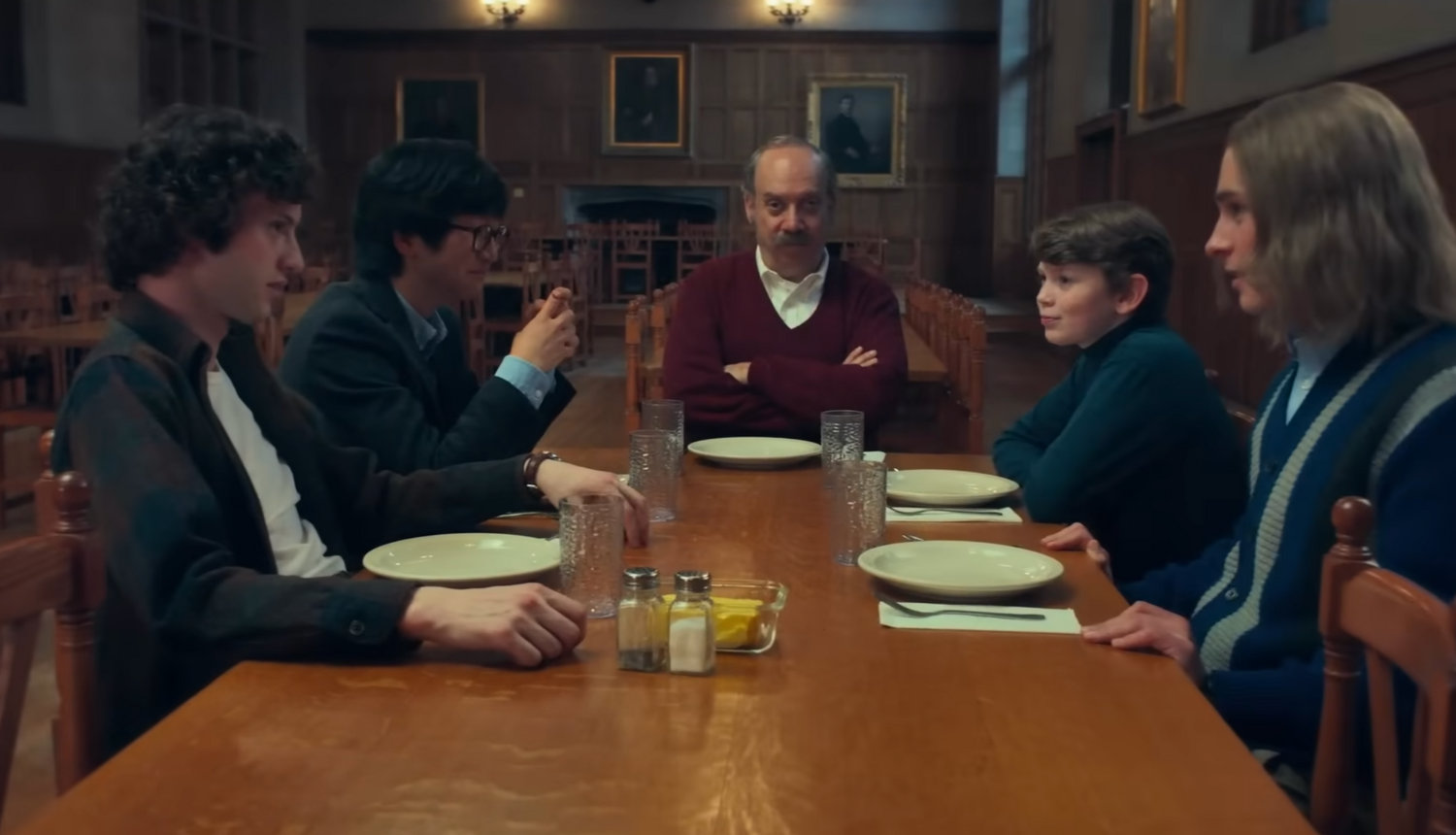
The Holdovers, Directed by Alexander Payne
Set at an elite boys school during the Vietnam War, this dramatic comedy begins in cynicism and ends in an act of altruism that reflects Payne’s own idealism about teachers and the need to do the right thing—even if it involves lying. A demanding classics teacher (Paul Giamatti) is demoted to spending the winter holidays with students who don’t have anywhere else to go. In the end the holdovers are the teacher, a smart alecky preppy (Dominic Sessa), and the school’s head cook (Da’Vine Joy Randolph), in which they end up bonding over their unfortunate lot and hidden griefs.
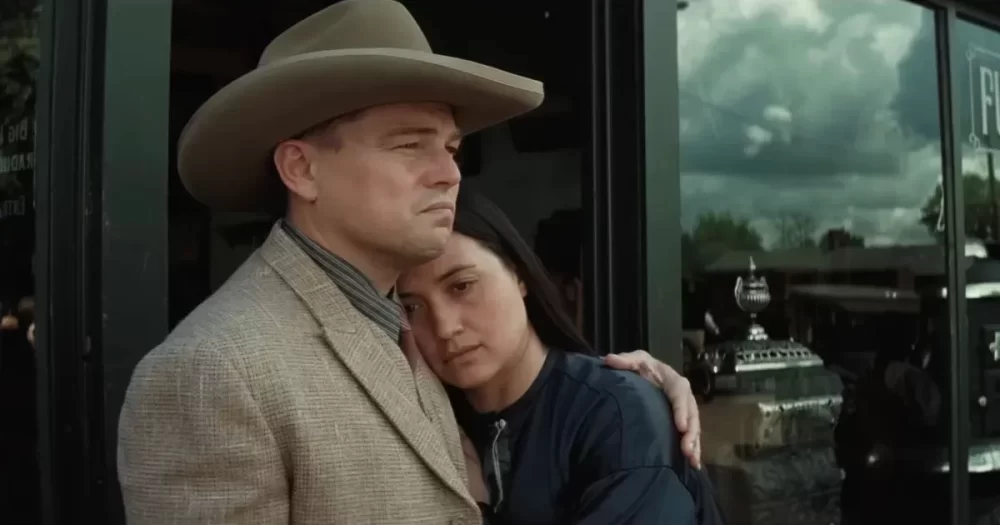
Killers of the Flower Moon, Directed by Martin Scorsese
Based on the true story of how greedy white men tried to take over the oil fortune of the Osage tribe in the early 1900s—by hook or by crook and by murder—this film shows auteur Scorsese at the apex of his directing powers. Fresh from a stint in World War I, Ernest Burkhart (Leonardo DiCaprio) arrives in Oklahoma to live with his calculating uncle (Robert De Niro), who coaches him to marry Mollie (Lily Gladstone) for her family’s oil rights. The story unravels like a mystery, with suspicious death upon suspicious death, until finally the precursor of the FBI come to investigate.
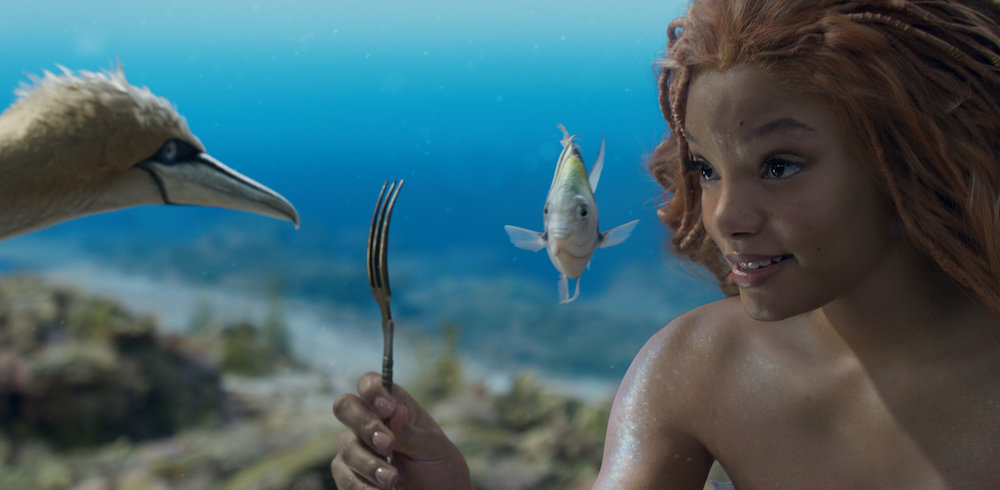
The Little Mermaid, Directed by Rob Marshall
Yes, it’s groundbreaking that the lead Ariel is played by Halle Bailey, a gifted young Black actress and singer, but this movie is on my list because she gives a deeply moving performance as the wide-eyed and rebellious little mermaid who wants to know more, much more, about the world above. The invention of her undersea world is also inspired, and the interlace of live action and CG effects is enchanting. As you may recall, in the original Hans Christian Andersen tale, Ariel makes an unfortunate bargain with a witch to live on land, but here she gets a proactive, happy ending—Yay!
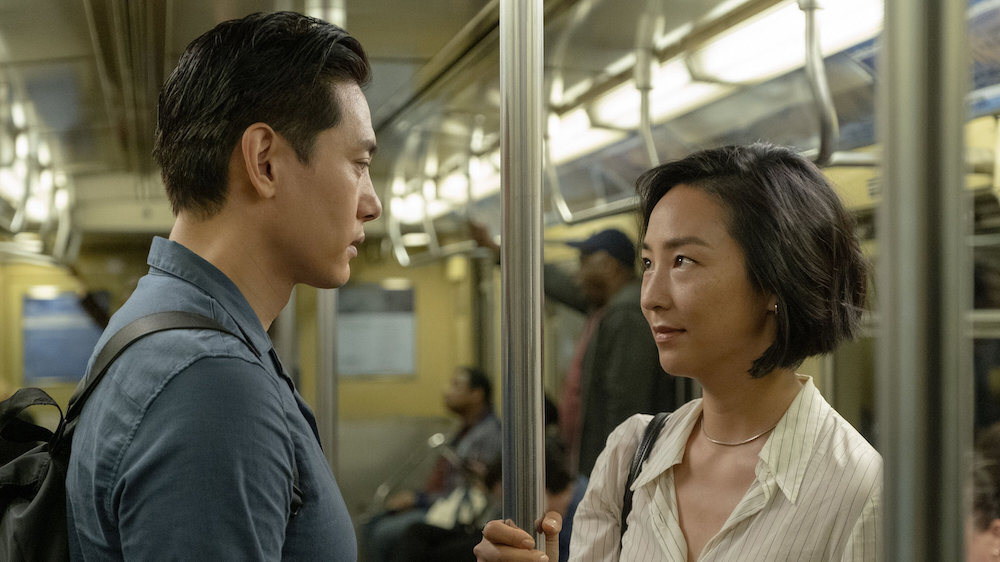
Past Lives, Directed by Celine Song
This slow, wistful movie features a 30-something Korean American woman, Nora (Greta Lee), whose emotional world gets thrown when a childhood crush resurfaces. That boy, Hae Sung (Teo Yoo), stayed behind in South Korea, while her family immigrated to Canada. Twelve years later they have a rekindling of their special connection via the internet, but she eventually marries another writer (John Magaro) and settles down in New York. One day Hae Sung decides to come visit, and Nora asks herself what might have been.
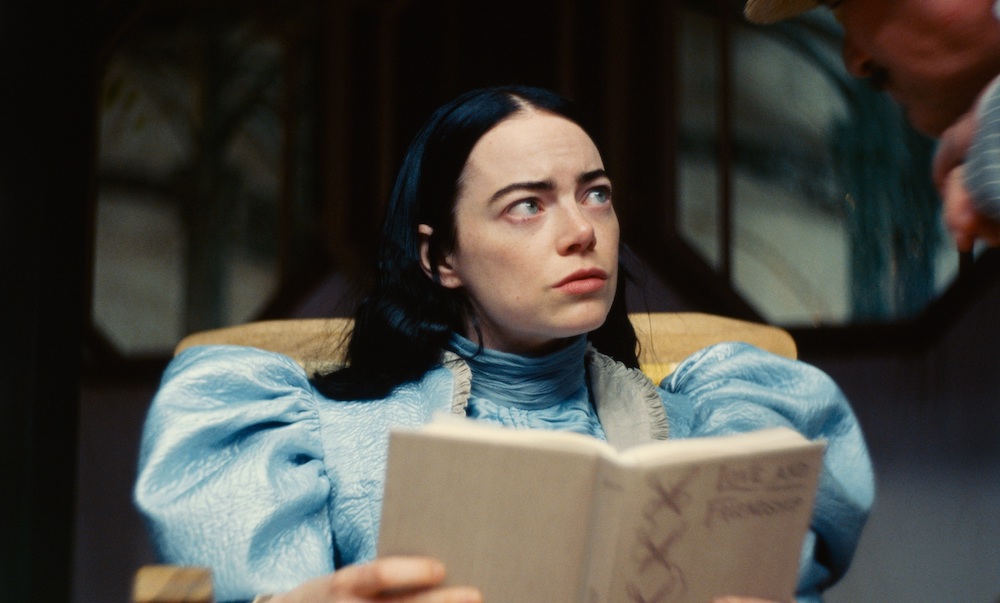
Poor Things, Directed by Yorgos Lanthimos
Director Yorgos Lanthimos tends to go way way way over the top in his films, and in this rewrite of the Frankenstein story, a young suicide (Emma Stone) is “reanimated” as Bella Baxter. In a surgery done by a very rich and somewhat mad Victorian scientist (Willem Dafoe), her brain was replaced by that of the baby she was carrying, and yes, things continue in this weird and perverse way until the end. Bella is basically a walking id, saying and doing what pops into her head. While Lanthimos devolves to conventional prurience in inventing her fate (she becomes a prostitute, natch), he does highlight how men want to control women. Also, the sets are stunning—a brilliant mix of Victorian, Art Nouveau and Steampunk by production designers Shona Heath and James Price.

